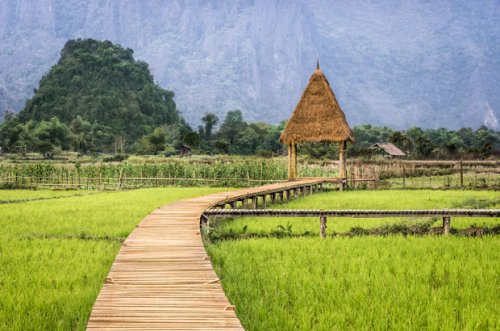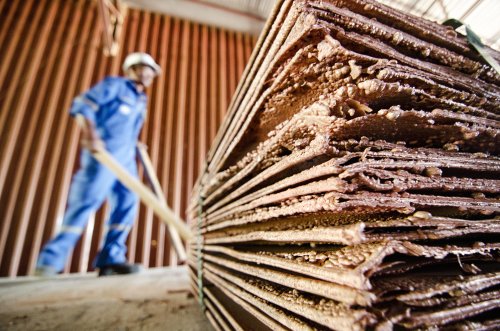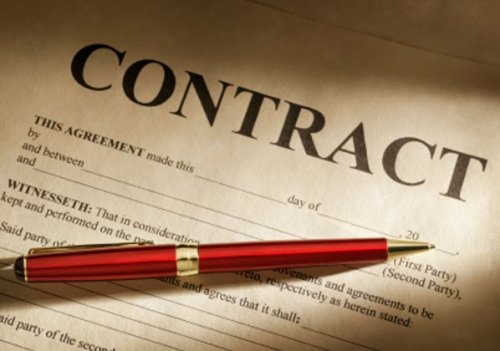Land In Laos: Can I Have Some Please ?
Many foreigners who come to Laos are interested in living in the area and in having a home, be it an apartment, a condominium or a house to live in. Because home ownership is so common in other countries, many want to buy their own home or otherwise control the property.
Being new to Laos, whether coming here with your family or coming here to invest in business yourself, one of the first questions you may have is whether you can buy property to live in or as part of your business plans.
Land ownership, and the rights of foreigners over land, is a complicated issue here. Foreigners are not able to own land here, but they can have long term leases over land. Confusingly, foreigners can own buildings.

For the time being, these are the general rules to do with land.
• Lao citizens can have what is called ‘land use rights’ over land, which is roughly equivalent to ‘land ownership’ or ‘estate in fee simple’ that may be familiar to you from your home country.
• Lao citizens’ ‘land use rights’ are different to ‘land ownership’ in that the Lao citizen owner has those land use rights subject to the underlying ownership of the land by the Lao state.
• Foreigners may take out long term leases over land ‘owned’ by Lao citizens or the State.
• Foreigners may own buildings but not the land they are built on.
• There have been some recent legislative changes potentially allowing foreigners to own land, under very narrow circumstances, but the exact extent of these changes is not clear yet and information about these changes should be treated with a great deal of caution.
 As the issues of “land ownership” and “land use rights” are very sensitive and potentially very complicated, we recommend contacting an experienced commercial lawyer for more information.
As the issues of “land ownership” and “land use rights” are very sensitive and potentially very complicated, we recommend contacting an experienced commercial lawyer for more information.
 This article has been provided by Arion Legal, an Australian law firm, with an office in Vientiane that has been offering international standard legal advice and documentation for foreign investors operating in, or looking to invest in, Laos since 2008.
This article has been provided by Arion Legal, an Australian law firm, with an office in Vientiane that has been offering international standard legal advice and documentation for foreign investors operating in, or looking to invest in, Laos since 2008.





Are you confusing house ownership with land use (‘din lat’) with full ownership of house and land — i.e. house papers in Lao name stating husband even if non-Lao, owner’s mother and father, registered at the land department? We have two properties that we waited some time to get ‘proper’ documentation for. These give full ownership to my wife (in the case of divorce a spouse gets 50%). We pay tax etc on this basis and if any ‘compulsory purchase’ order is made by the State, we get compensation. If you are correct in saying the state owns all land, why do Lao part with large sums to ‘buy’ land (with no building) if they can be moved off without full compensation?
Dear Dr Cooper,
Thank you very much for your query. Our brief advice above is aimed purely at foreigners who may want to purchase land to ‘own’. I think you are talking about several issues, both of which are more to do with land (and buildings) where there is Lao ownership.
The main issue for foreigners is whether or not foreigners can own land in their own name. They cannot. The second issue is the question of compensation for the compulsory acquisition of land by the State.
Section 17 of the Constitution states that all land in Laos is a national heritage. This is mirrored in Section 3 of the Law on Land which provides that the “land of the Lao PDR is under the ownership of the national community as prescribed in Article 17 of the Constitution”. The Law on Land then goes on to provide for the rights and obligations of a Lao citizen concerning land, and in particular provides for a Lao person to have ‘land use rights’ , which is the closest a person can get to what Westerners would recognise as land ‘ownership’, Part III, Chapter I, Sections 52 to 63.
Part III, Chapter II, Sections 64 to 67 cover the rights of foreigners over land, which are really rights to leases or ‘concessions’ over land. These rights do not equate to the ‘land use rights’ accorded to Lao citizens.
Part III, Chapter III, Sections 68 to 72 provide that the State pays compensation to persons with ‘land use rights’.
The reason for Lao people paying large sums to ‘buy’ land is that, by and large, people are not moved off their land without compensation. Of course, the question of what is ‘full’ compensation is in the eye of the beholder and not one that can be adequately covered here. The ‘land use rights’ available to Lao citizens are still rights that can be traded for money, even if they are not the ‘full’ rights that foreigners are accustomed to.
I trust that the above answers your queries.
Catherine Follett
Country Manager
McDonald Steed McGrath Lawyers
Two follow-up questions:
1) What would be the rights of a foreigner if he/she was leasing land from the state, or sub-leasing land from a Lao “land owner”, in case of an attempt of expropriation by the state?
2) What is the maximum term of a land lease for foreigners?
Thank you.
Dear Mr Wiedemann,
Thank you very much for your questions. The answers are not necessarily brief, but please see below.
1) If a foreigner is leasing land from the State, for example as part of a ‘concession’ from the State for a particular project, and that foreigner (usually a company) does not comply with timeframes contained in that concession agreement, for example for the construction of the project infrastructure, then the government may terminate the concession agreement in accordance with the conditions contained in it. This is not a case of ‘expropriation’, but rather a case where there is a breach of the contract between the foreigner and the government, and accordingly the contract is terminated.
If the foreigner has a standard lease direct with the government, the government’s termination of the lease would be negotiated direct with the foreign tenant. There is a great deal of additional information about maximum terms of leases between the government and tenants in the Decree on State Land Leases and Concessions, No. 135/PMO, 25 May 2009, and I recommend looking to that for more specific details on this point.
2) In the case where a Lao person has ‘ownership’ rights over land, and he or she has a lease with a foreigner but the government wants to expropriate the land, the matter comes down to negotiation between the parties. The government and the Lao owner would have to negotiate compensation for the Lao owner. The Lao owner would then have to negotiate with the foreign tenant to terminate their lease agreement. As part of that termination negotiation, the foreign tenant would want to have the unused rental amount repaid to them, and a well-written lease agreement should already provide for that kind of refund in the case of termination of the lease.
3) The Law on Land provides a number of scenarios for different uses of land, with different maximum terms for each kind of land use. We would need to know exactly what kind of land use you are referring to to give the correct answer. In particular, please see Section 65 of the Law of Land for various maximum terms.
But in general, if a foreigner is renting land from a Lao person who only has a ‘leasehold’ right over the land, that Lao person can only provide a term of lease to the foreigner that does not go beyond the length of time that the Lao person has their own leasehold rights over the land.
For example, if a Lao person has a lease lasting 10 years from the government, they cannot grant a lease to a foreigner for a period of time longer than 10 years, because they cannot grant a right that they themselves do not have.
I aploglise for the wordiness of the answers above, and the lack of explicit answers, but as you can see the questions are a little complicated.
Catherine Follett
Country Manager
McDonald Steed McGrath Lawyers